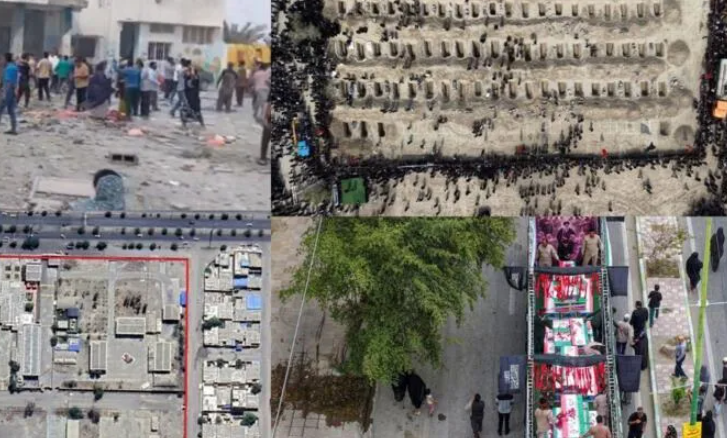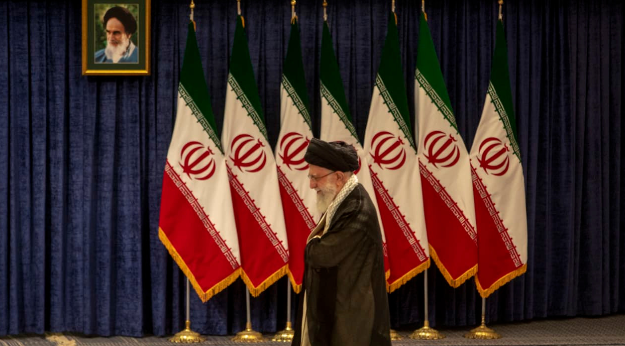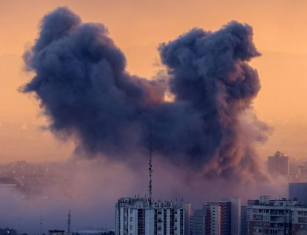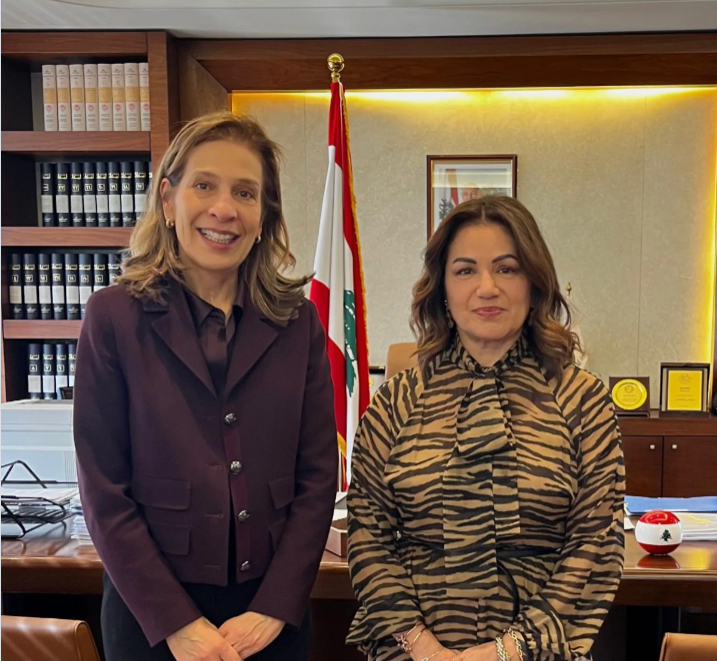
THANK YOU DON TRUMP…
Un pacificateur autoproclamé qui prétend avoir mis fin à neuf guerres et promis d’en finir avec l’interventionnisme et les conflits sans fin surprend l’Amérique et […]

Un pacificateur autoproclamé qui prétend avoir mis fin à neuf guerres et promis d’en finir avec l’interventionnisme et les conflits sans fin surprend l’Amérique et […]

Les relations harmonieuses avec les Juifs dans l’Antiquité L’histoire millénaire des Perses et des Juifs est tissée de liens, d’une mémoire partagée nourrie de […]

L’AVANT ET L’APRES KHAMEINI Par Radouan As Sayyed (AssasMedia) كان مقتل المرشد الأعلى علي خامنئي حدثاً يفوق الهزّة التي أحدثها مقتل حسن نصرالله. من هو […]

Pour la désescalade des tensions du Moyen-Orient La Chine espère que la France travaillera avec la Chine pour promouvoir la désescalade des tensions au Moyen-Orient […]

Key Takeaways






Iran Update Evening Special Report, March 2, 2026

Bibi a perdu le sommeil et les Israéliens tremblent de peur… Vingt pays dont cinq européens conduits par la France et deux arabes qui ne […]

Un pacificateur autoproclamé qui prétend avoir mis fin à neuf guerres et promis d’en finir avec l’interventionnisme et les conflits sans fin surprend l’Amérique et […]

PROTESTER, CONDAMNER ET VOIR PASSER LE TRAIN DE L’HISTOIRE…

« Iran , les enjeux de la confrontation »


The Purge of Zhang Youxia and Liu Zhenli

A bloody season: the olive harvest in the West Bank

TEASER DE LA 128ème EDITION DE L’ORTHODOXIE ICI & MAINTENANT



البابا في لبنان: تعميم السّلام الإبراهيميّ؟


« Partout en France, des festivals consacrent en 2026 une place centrale au cinéma palestinien. Toulouse, Rennes, Paris, Lyon et plusieurs villes de Loire-Atlantique donnent à […]

CMA CGM is Launching New Direct Service

PRESENTATION A LA PRESSE DU LIVRE DE FOUAD KHOURY-HELOU

Macron et MBS renforcent leur coopération sur le Liban


@fondationcmacgm supports Tripoli and its people!


In response to the disaster affecting the city of Tripoli, the CMA CGM Foundation has established an emergency fund in collaboration with the ministry of social affairs to provide immediate support to the most vulnerable families during these difficult times.
Deeply connected to Lebanon, we continue to stand by its people at all times.
This operation is part of the CMA CGM Foundation’s global efforts to respond to humanitarian crises and natural disasters.

Le groupe Thales va recruter plus de 9 000 personnes dans le monde, dont 3 300 en France
Plus de la moitié de ces recrutements se font dans le secteur de la défense, avec des profils allant de l'ouvrier qualifié à l'ingénieur, et des diplômes du CAP au doctorat.
Des recrutements pour répondre aux carnets de commandes qui ne désemplissent pas depuis la guerre en Ukraine. Thales recherche notamment des soudeurs, des techniciens pour développer des logiciels, des chercheurs spécialisés dans l'intelligence artificielle.
Le contexte géopolitique amène "à soutenir la montée en cadence de notre activité", explique à franceinfo Matthieu Motillon, directeur des recrutements de Thales en France. "Sur notre activité radar, on a plus que triplé la production." Depuis cinq ans, Thales a recruté au moins 8 000 personnes par an. En 2025, 8 800 collaborateurs ont été embauchés, dont 3 000 en France, où "à peu près 70% de nos recrutements" ont été réalisés dans l'ingénierie, détaille Matthieu Motillon.
Sur les 3 300 embauches annoncées en France en 2026, la majorité se fera en région parisienne. 1 630 recrutements sont prévus en Ile-de-France, 290 en Bretagne, 280 en Nouvelle Aquitaine, 270 en Provence-Alpes-Côte d’Azur, 250 en Occitanie, 220 en Centre-Val de Loire, 180 en Auvergne-Rhône-Alpes et 130 dans les Pays de la Loire.
Sur les 9 000 recrutements annoncés par Thales dans le monde, 800 sont prévus au Royaume-Uni, 630 en Amérique du Nord, 530 en Australie, 520 aux Pays-Bas, 450 en Inde, 300 en Allemagne, 240 en Roumanie, 200 à Singapour et 140 en Pologne.
Cette dynamique d'embauches n'est pas propre à Thales. Sur les plateformes d'offres d'emplois, beaucoup d'industriels publient des annonces, des grands groupes comme Dassault ou Safran, des entreprises plus petites, mais aussi la Direction générale de l'armement (DGA) du ministère des Armées. "L'industrie de la défense, c'est à peu près 200 000 emplois en France", selon Benoît Labrousse, le président du cabinet de recrutement Randstad France. "A peu près 10 000 emplois ne sont pas pourvus aujourd'hui. Et on projette que d'ici 2030, sur les 200 000, à peu près 60 000 vont partir à la retraite", souligne-t-il.
Ces recrutements se font avec des spécificités régionales. En Bretagne ouest, vers Brest, les besoins identifiés sont "en termes de charpentiers, de chaudronniers ou de soudeurs", précise le président du cabinet de recrutement Randstad France. En Normandie, notamment à Cherbourg, "on a des besoins de techniciens dans le domaine nucléaire". Et dans le Sud, "on est plutôt sur des projets de maintenance des grands porte-avions", ajoute Benoît Labrousse.




La France, au cœur de la stratégie de développement saoudienne


Copyright © 2026 | Thème WordPress par MH Themes
